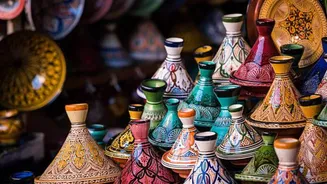A Historic Gathering
From October 14 to 16, New Delhi hosted the UNTCC Army Chiefs’ Conclave, a pioneering effort. This event marked a first-of-its-kind diplomatic and military
outreach, drawing top military officials from more than 30 countries. The initiative, viewed as significant, focused on empowering troop-contributing nations within the UN peacekeeping framework. The event saw the participation of at least 15 foreign Army Chiefs, along with senior commanders and key defence representatives from Asia, Africa, and Latin America, highlighting its global scope. The primary goal was to foster dialogue and cooperation to enhance the efficiency and efficacy of UN peacekeeping operations worldwide. The summit aimed to strengthen the collective voice and influence of countries that actively deploy personnel in UN peacekeeping missions, creating a more inclusive decision-making environment.
Key Participants & Focus
The conclave attracted participation from diverse nations including Algeria, Bhutan, Bangladesh, Brazil, Burundi, Ethiopia, Ghana, Indonesia, Kenya, Malaysia, Mongolia, Nigeria, Nepal, Rwanda, Sri Lanka, Uganda, and Vietnam, among others. The discussions at the event centered on pivotal areas for improving UN peacekeeping. The focus included enhancing interoperability between the participating countries’ forces, boosting coordination mechanisms, and the strategic application of indigenous technologies and innovations within peacekeeping operations. Sessions delved into better training practices designed to equip peacekeepers with the skills needed to navigate conflict zones, along with an emphasis on the safety and security of personnel deployed in these volatile regions. A major emphasis was placed on adapting peacekeeping operations to address emerging security challenges, aiming to align with current global dynamics.
India’s Role & Objectives
The conclave provided a strategic platform for India to exhibit its expanding role as a responsible global partner, dedicated to maintaining peace and stability. India, recognized as one of the largest and longest-serving contributors to UN peacekeeping missions, has deployed over 2.75 lakh personnel across 50 missions throughout the years. The initiative aimed to strengthen India’s defense diplomacy and underscore its commitment to multilateral peacekeeping efforts. The outcomes of the New Delhi conclave are expected to contribute to wider UN-level deliberations on how peacekeeping operations can evolve to meet new and emerging security threats globally. The goal was to offer insights into the effectiveness of current practices and identify innovative approaches to enhance peace operations.
Diplomatic Landscape & Outcomes
Notably, China and Pakistan were not invited to the high-profile gathering. Bangladesh and Nepal, significant contributors of troops, were represented by their Vice Chiefs or three-star officers. The conclave's objectives encompassed enhancing the effectiveness of UN peacekeeping missions. Discussions aimed to facilitate interoperability between countries and strengthen coordination. The event was designed to integrate innovative technologies, improve training protocols, and ensure the safety of peacekeepers serving in high-risk areas. The overarching goal was to ensure that UN peacekeeping efforts are adapted to tackle future security challenges. The insights and recommendations from the New Delhi event were intended to influence and inform broader global discussions on peacekeeping.

















